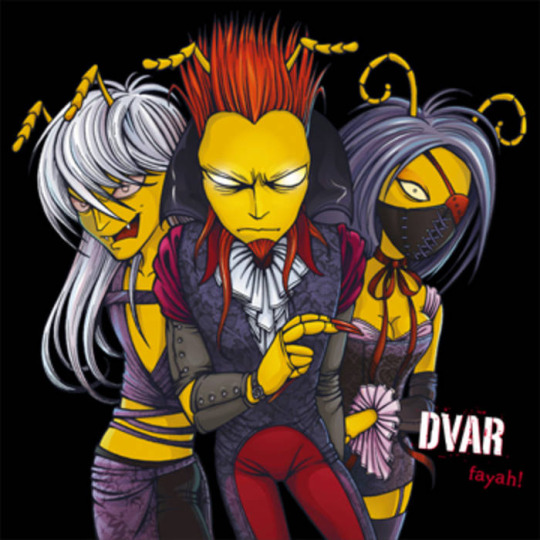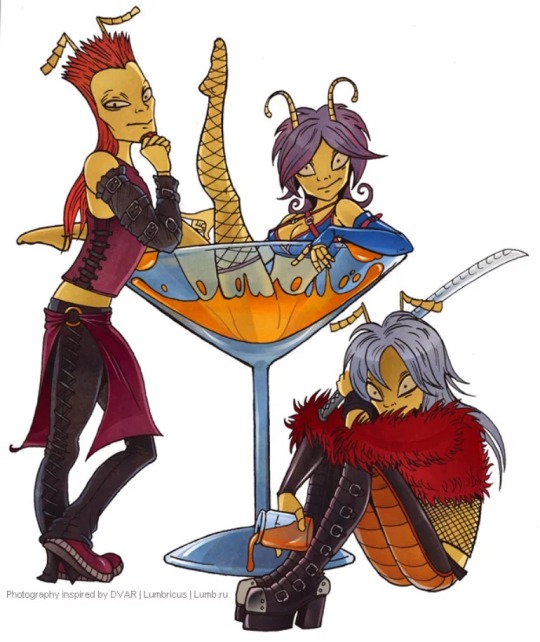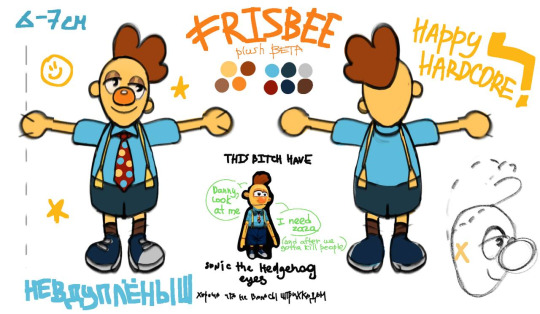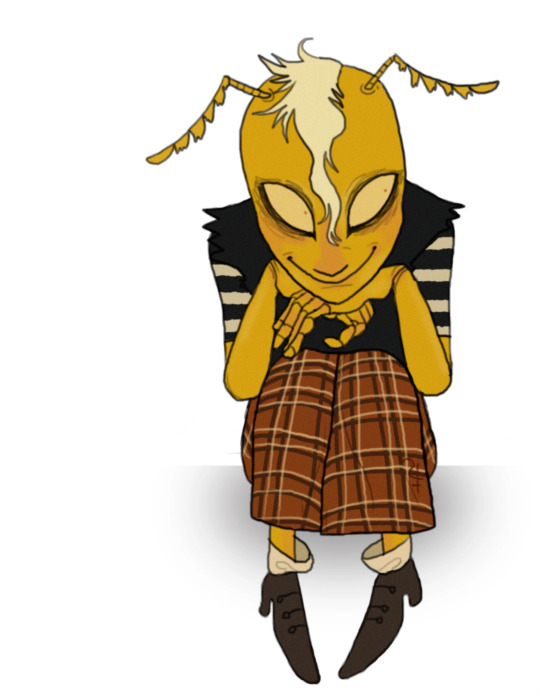#dvar
Note
Dvar!
Dvar covered The Fly ["Zvuuv"] by Caprice.
Caprice recorded We Are All Faeries by Tori Amos.
Tori Amos recorded Time by Tom Waits.
4 notes
·
View notes
Text


they are the silliest
7 notes
·
View notes
Text
Thursday Thoughts: Structure, Flexibility, and Torah
(I wrote this d’var for tomorrow’s Shabbat evening services. Turns out I won’t be leading services tomorrow after all - so I’m sharing it here instead!)
I love being a Jew. I see it as an active thing – BEING a Jew. Living a Jewish life, making Jewish choices, taking part in our rich, meaningful traditions and fulfilling the mitzvot of the Torah.
However, if I said that I was living a Jewish life in every possible way – making all Jewish choices, taking part in all our traditions, and fulfilling all mitzvot – that would be a lie.
Those of you who come to Shabbat services regularly on Friday nights know that you will nearly always find me here, now. However, if you also come on Saturday morning, then you know that you will almost never find me there, then. I bake challah, but I do not light Shabbat candles. I take time off from my day job on Jewish holidays when I can, but I’m not always able to. I eat kosher foods, but I do not have kosher dishes, since I share my kitchen with three people who do not keep kosher.
I do what I can. Sometimes, I feel like I’m not doing enough.
It’s easy to imagine that G-d might also think that I’m not doing enough. After all, there are 613 mitzvot in the Torah. If your boss gave you an employee handbook with 613 rules for employee conduct, then you would assume that this is a strict boss with a very structured work environment, someone who wants you to obey their instructions without fail or flexibility.
But this week’s parsha makes it clear that “obey without fail or flexibility” is not an entirely accurate description of G-d’s expectations for Jewish people.
This week we read Parshat Vayikra – the beginning of the book of Leviticus. Incidentally, Leviticus has 243 of the 613 mitzvot – more than any other book in the Torah.
(If you’re curious, second place goes to Deuteronomy at 203 mitzvot, Exodus comes in third at 109, Numbers is fourth at 56, and Genesis has only two.)
So, Leviticus is the Big Book of Rules, right? In Vayikra, the start of this book, there are a lot of rules about making offerings at the temple. These are sin offerings. A person would admit wrongdoing and atone for their sin by making the offering. In Leviticus chapter 5 verse 6, the Torah explains, “he shall bring his guilt offering to the Lord for his sin which he had committed, a female from the flock, either a sheep or a goat, for a sin offering.”
But it doesn’t end there. The next verse, verse 7, reads “But if he cannot afford a sheep, he shall bring as his guilt offering for that [sin] that he had committed, two turtle doves or two young doves before the Lord.”
And then if we jump ahead a couple verses, to verse 11, the Torah reads, “But if he cannot afford two turtle doves or two young doves, then he shall bring as his sacrifice for his sin one tenth of an ephah of fine flour for a sin offering.”
(An ephah is a unit of measurement here, and according to Google, it’s about the size of a bushel. So you would bring a tenth of a bushel of flour. I’m not sure exactly how big that is, but it doesn’t sound like much. Certainly it sounds less than a whole sheep.)
So – the commandment here, the mitzvah, is to make a sin offering. And through the Torah, G-d gives specific instructions about what to bring and what to do with it – you bring a sheep, and this is how you kill it. It’s a structure for atonement. But the Torah also provides exceptions or alternate options for this sin offering. If you can’t bring a sheep, bring two doves, and if you can’t bring two doves, bring some flour. The Torah provides structure, and it also provides different structures depending on your individual means.
In doing so, the Torah takes a behavior that could be very limited – something that only rich people could do, the people who could afford to give up an animal because they had plenty more to eat or breed – and turns it into something that anyone could do, within their means, in the way that works best for them. It’s flexible. It’s also encouraging in a way – having these different options for how to participate in the mitzvah makes the whole idea of making sin offerings feel more accessible for anyone.
And this ties in well with how I see and experience Judaism. It’s accessible for all of us. Yes, there’s structure. Judaism includes instructions for every part of our lives. And like I said before, it’s an active thing. I don’t think that you can really BE a Jew if you aren’t doing ANYTHING that’s Jewish.
But you don’t need to do EVERYTHING.
You don’t need to obey EVERY commandment in exactly the same way as everyone else in order to live a Jewish life, make Jewish choices, and participate in the Jewish community. G-d empowers all of us to show up when we can, and how we can, in the way that works best for us, to create a meaningful life as Jews. For me, tonight, that means standing up here in front of you, delivering this d’var. Last week, it meant sitting in the back row with my friends, and next week, it will mean traveling home to spend Passover with my family. And every week, every day, we get to make those Jewish choices, to create our Jewish life. Shabbat shalom.
8 notes
·
View notes
Link
My video
On Yule Day and before Christmas...
Video O.R
Track unknown author
Art from AI
8 notes
·
View notes
Text
actually criminal that so few people listen to dvar and mr kindhoover
#dvar#mr kindhoover#mr kindhoover doesnt even have a spotify and dvar only has 6000 monthly listeners :(
1 note
·
View note
Text
A cool Dvar Torah I read:
Parshat HaChodesh, the New Moon, and Eclipses!
This Shabbat we read a special section from the Torah called Parshat Hachodesh. It is the story of the Mitzvah of Rosh Chodesh, that we track, observe and celebrate the new moon each and every month.
Since the day that G-d commanded Moshe regarding this Mitzvah, two weeks before the grand Exodus from Egyptian slavery, we have kept a close eye on the moon, looking out for that celestial monthly moment of rebirth that G-d showed Moshe that early evening in Egypt.
In the Torah, our holidays - Passover, Sukkot, Yom Kippur etc. - are prescribed to happen on a certain day following the new moon: "the fifteenth day after the new moon", "the tenth day after the new moon" and so on. Meaning, that if we wish to celebrate these festivals, we need to keep track of the lunar cycle, even if no one else on Earth gives it a second thought.
Along the way, the Jewish people have come to identify with the moon.
We can empathize with the moon's ups and downs, so similar to our own history. One moment we're shining bright, the next moment we're so oppressed and persecuted that casual observers have often written us off, predicting our extinction, G-d forbid. And yet the next moment, to their disbelief, we're back, reborn out of the darkness, and growing stronger every day.
It's notable that G-d interrupted the flow of events leading up to the Exodus to tell Moshe about Rosh Chodesh. Not only because it seems to be unrelated to what was happening then, but also because by giving that Mitzvah right then, it meant that it would given in Egypt, the darkest spiritual locale in the world. G-d could have waited a couple of weeks until we were out of that spiritual wasteland and told us about Rosh Chodesh in the desert. Why the rush?
*
Everyone's talking about the eclipse happening Monday afternoon - The Great North American Eclipse. It's a major event that will have millions of people looking up to the Heavens, an event that will not happen again in the USA until 2044.
Now, solar eclipses only happen around the new moon. Monday night and Tuesday, Jews will observe Rosh Chodesh. And not just any Rosh Chodesh, but the annual Rosh Chodesh of all Rosh Chodeshes - the first Rosh Chodesh of the year. This means that Monday is the day before rebirth, the day when the moon is at its very lowest, darkest point, the moment that symbolizes the most difficult, challenging times of the Jewish People.
And so it turns out that precisely in its smallest, weakest moment, the moon looms largest: it can even eclipse the mighty light of the sun.
Is this not our story exactly? Is this not precisely why G-d told this to Moshe in Egypt, in our place of misery and suffering? During the last new moon of our centuries-long sojourn in Egypt, G-d shows Moshe the truth about the miracle of Jewish rebirth and eternity. In the place of our pain, before the redemption, in the midst of the uncertainty, G-d stops everything and tells us to look up at the moon, see our story in the moon's story, and discover in the moon a solid friend, an eternal gentle reminder that it will be okay, that no matter what, Am Yisrael Chai forever.
And better yet, as Monday's eclipse shows, our darkest moments are when we shine brightest and loom largest, as we begin the great turnaround, the journey from darkness to light.
This Monday will be the 3,336th anniversary of the day G-d showed Moshe the moon.
How perfect. During these painful days of antisemitism, the sun, 400 times bigger than the moon, is eclipsed by it. Far from tottering or faltering, the Jewish People are stronger than ever. Precisely when casual observers report us missing, that's when we shine.
L'Chaim, brothers and sisters. Our best days lay just ahead. So in the words of the Lecha Dodi which we'll all be singing in just a few hours:
"Wake up, wake up! Your light is coming, rise and shine! Time to wake up and say your song, because G-d's glory is revealed upon you."
by Rabbi Eli Friedman, Chabad Calabasas CA
#jumblr#eclipse#solar eclipse#north american solar eclipse 2024#judaism#if jew know jew know#rosh chodesh#rosh chodesh nissan#dvar torah
92 notes
·
View notes
Text


I made a reference for a friend who was going to make a Frisbee PushToy. She didn't play the game, but she really liked the character (for the most part, my environment seems to me, even my mother liked his design very much. everyone loves him very much). Returning to the topic, she would like to sew a Frisbee and I will also have to make some efforts to support her idea.

youtube
In addition, I drew a small picture inspired by "Dvar" music. I remembered that this particular band also has some association with bees and biblical themes (if I'm not mistaken), and their music can be described as something strange and unusual to listen to. Everything that I could relate to the idea of Frisbee. There were also rumors about this band that if you listen to a certain track troubles in life will begin, this myth was in the noughties and people were incredibly afraid to listen to this music in principle.
Only 2020-2021 years, people found this lost media and Dvar started playing with new colors again
I really like Dvar, despite the fact that many people may consider me strange, but I see this as a wonderful combination of sound instruments. The vocals are still the strangest part of this band, as they speak their own made-up language, but still.
#FRIS but always BEE#manhunt 2#frisbee manhunt 2#manhunt#rockstar games#daniel lamb#leo kasper#dvar fandom i'm sorry but i'm mention you buddies
12 notes
·
View notes
Text
literally how did my family ever turn me off religion. singing is my longest-standing passion in the world; i've been doing it pretty much every day from birth downwards, and i also freaking love books. i love to talk about them i'm a known fandom nerd i have entire tags on this blog where i just write long ass meta posts about books. how the FUCK. did folks manage to fuck up "weekly meeting where we all sing together and talk about a book." you could fist me and not get that far up my fucking alley. And somehow people who were actively trying to get me into their thing, their thing that is TAILOR MADE FOR ME TO LIKE, managed to instead give me deep-seated problems with it. anyway yeah i am officially determined to get so religious that it makes my family miss when i refused to engage with it at all because like come on this is concentrated special interest juice how'd they drop the ball on it.
#i am trying my hand at writing a dvar and immediately determining that i've gotta do this weekly#because i am having the time of my fucking life#but i also am so frustrated that i did not get to engage with this autistically until now#like. cmon “making me religious” was not a hard job it's just a shocking amount of christians don't seem to know the appeal of religion?#anyway the synagogue i'm at now is not having the problems of my childhood church in the slightest#so like now i get to be annoying about it forever#religion#christianity#judaism
2 notes
·
View notes
Text
pardes videos from 7 years ago got me on the verge of tears bc i miss learning torah
#jlf is not hitting this semester..#i mean im keeping an open mind maybe it'll get better#but the group is just. not really interested ngl#at least in yeshiva we weren't afraid to get real! i do miss that#i have to start writing dvar torahs it's my only hope
5 notes
·
View notes
Text
In this week’s parsha, Moses is told by Hashem that he will not see the promised land, but his descendants will. Like Moses, we know that a healed world will not come in our lifetime. We hope for it, we pray for it, we work our asses off for it, we dedicate ourselves to a practice of expecting it — but realistically we know that our work is to water the seeds of healing for our descendants to bloom, not for ourselves.
And the thing that we are doing when we work and pray for a joyful future, another word for that is magic. When we do the practices that connect us with our ancestors — our ancestors even further back than the rabbinic traditions, the Jewish wise women and healers and herb workers and amulet makers and mystics who were drawing on the divine creative power to shape the world to their touch — when we dance the same dances they knew, when we raise our voices in the same songs and prayers and wordless niggunim that they did, when we play with and against the fractal harmonies of Hashem moving around and through and inside us — that is magic.
And throughout history, we have seen systems of domination be deeply invested in crushing these kinds of magic, and we have seen these buds of disobedient mysticism and witchcraft bursting their way back through the asphalt over and over again.
The reason they want to eradicate us is the same reason that we cannot be eradicated: that magic belongs to the earth and the people and the body and it cannot be controlled. When we find pockets of disobedience in ourselves, we find both the key to our power and the key to the danger we’re in.
It’s not a coincidence that the people who want me dead because I’m trans and the people who want me dead because I’m jewish are the same people doing the same stuff for the same reasons. The foundation of the magic that we do is to democratize the realm of the spirit, take it away from the domain of hierarchy, and hierarchy’s response to this is to fight back with all its considerable power.
My family is being hunted and if you think of me as your sibling it’s your family too. This is not about how I need you to do something on my behalf. This is about you finding a spark of disobedience in your own heart. It might be a strong flame! Or it might feel like a sputtering ember. But what you need to do right now is blow on that spark and feed it and keep it safe, because that spark is the thing that binds all of us together — Jews, and Muslims, and queers, and refugees, and midwives, and gender refuseniks, and perverts, and revolutionaries, and sex workers, and witches, and descendants of the Bund and the Black Panthers, and the Priestesses — all of us disobedient ones. That collective fire is the source of our power and it’s what we connect to when we do magic.
And it’s time for your magic now. if you see the fact that we won’t reach the promised land in our lifetimes and use it as an excuse to give up, it’s a victory for those that want to crush your magic. The hour is late and the world needs you — Hashem needs you — and I personally need you — to find that power in yourself and get to fucking work because the water is rising, and so are we.
13 notes
·
View notes
Text
The Four Sons (or: Passover with the Waynes).#prompt
so, Thinking about the Robins, Bruce has 4 sons. And after Leyl Ha'Seder, I find myself thinking a lot about the "4 sons" in the Hagada. (suggested translation below, though I read it in the original language -Hebrew).
TLDR: it suggests that the Torah speaks of 4 sons: Smart, Wicked, Simple ( "tam", can also refer to innocent\fool), and one that doesn't know how to ask. then give different scenarios\answers to the interactions with each son.
I think there's a very interesting parallel about how the robins SEE THEMSELVES\how they are portrayed.
Smart: Tim is seen, by himself and others, as "the smart robin".
Wicked: Jason (RH) clearly portrays as the evil\darker\villain, and also separates himself from the family. Whether it's bc he uses guns, or "came back wrong" (bs, IMO).
Simple: Dick, though this is a bit tricky. I don't mean to say that he's stupid. I definitely not saying he "did nothing wrong". But I think that Dick Grayson always has some "Tam" vibe. he's not 'innocent' or 'stupid'. He is a very complex person, but at his core he always lets ppl see him as "Goldy" or "smiley robin", the bright leader, etc.
one that doesn't know how to ask: Damian. He's more likely to stab you than ask you for help, or about what you're doing. And that's maybe part of his personality, but I also believe it's how he was raised - he was never allowed to ask questions or show any weakness, so he doesn't KNOW how to do that, even if he wanted. He doesn't see it as an option.
and I can't stop thinking of Passover, where they all gather together:
Dick: just want everyone to be okay and happy.
Dami: Tt... this cardboard is disgusting.
Tim: let me explain you everything...
Jason: I'll read the wicked son part. Since, you know, it's me.
[more complicated explanations undercut]
there are 2 explanations I like for this Midras:
it's about how to teach different people. Bc the Midrash speaks about 4 (different) sons, and also about how to deal with them.
The smart ask an over-complicated question. And get a full lecture of [everything there's to know].
The wicked asks "Why do you do that", and separates himself. he's answered by "bc that's what god did to me" (and my ancestors), implying that if [the son] was there, he wouldn't have been saved. I do have a problem with this answer, bc it's very harsh, but I think it's also sort of a reminder - doubt, but remember that you CAN doubt. It's also important to notice that "the wicked son" is still THERE - not hidden or unwelcome. Not being told to go away. Just "be aware -snarky questions would get a snarky answer".
The simple says "What's that?". which is a simple and complicated question. You could give him a 4-hour lecture about the origins of the holiday, sure, but he's not there. He won't remember anything. You do weird things, make him ask questions, and then he'd learn.
The un-ask one doesn't even know there's something to ask about, or how to ask. so you start by telling him, and make him want to hear more or ask about his interests.
2. The Midrash isn't about 4 different sons. We all have some of those, and we need all of them.
We start as babies - unable to ask. we slowly learn that the world is wide and start asking "what's that?", bc we don't have enough words and we want to know more. then, as teens, we rebel and question things. rethink and criticise the ways we were raised. as adult we keep on our way, learn more, and continue our way.
but we always stay with all those pieces. We'll always have this part that just go with it, this is how it is. We'll always have the wonder the wide-eyed "WHT??" when something new happens. The wicked make you critic and rethinks things - that can be both good\bad, depending on what you do with it. The smart that makes you research, learn more, and progress.
we'll always have the four sons inside of us.
and that's ok.
happy Passover, and thanks for coming to my DTalk (Dvar Torah), since I can't say it to my family.
#jumblr#jewish#passover#batfamily#batfam#batman#dvar torah#דבר תורה#פסח שמח#פסח#ארבעת הבנים#hagada#four sons#jason todd#tim drake#dick grayson#robin#damian wayne#bruce wayne#actually jewish#jewish culture#prompts#batman prompt
16 notes
·
View notes
Text
Thursday Thoughts: A Double Portion
[I will be reading this d’var at my synagogue tomorrow night!]
This week’s Torah portion is Chukat-Balak, which is actually two Torah portions. And that’s the first thing that caught my attention this week – some years, we read Chukat one week and Balak the next, and other years, we read them together. Why do we do this?
I did some research, and Chabad.org explains it like this. The Torah is split into 54 portions, or parshiyot. But there are only 50 or 51 Shabbats in a year, depending on if it’s a leap year, and there are also times when Jewish holidays coincide with Shabbat, and these holidays have special readings which replace the regular weekly Torah portion. So in any given year, we only have 48 weeks at the most in which to read 54 parshiyot. So to make sure that we read the entire Torah in a year, sometimes we need to combine Torah portions.
There are 14 parshiyot which can be paired together. Chukat and Balak are two of them. So that explains the technical reason why we read these two parshiyot together. But does this affect the WAY we read Chukat and Balak? Does reading these parshiyot together affect the way we INTERPRET what we read?
I believe it does. A lot happens in Chukat and Balak, and I believe that putting these two portions together encourages us to think about how all of the events fit together. So tonight, I’m not going to focus on one moment in Chukat-Balak. Instead, let’s go over the highlights and see what we discover.
Here are the highlights of Chukat: Miriam dies, Aaron dies, and Moses (after hitting a rock) is told by G-d that he will not lead the Children of Israel into the Promised Land. And then in Balak, a king named Balak summons the prophet Balaam to curse the Children of Israel, but instead, Balaam blesses the Children of Israel three times.
There’s a lot going on here! In Chukat, we see the three leaders of the Children of Israel, the siblings who together freed our ancestors from slavery, brought them out of Egypt, and have taken care of them since then – we lose two of them in quick succession, and we learn that soon the Children of Israel will lose Moses, too. Viewed on its own, Chukat is a sad story. At the end, we’re left wondering, what’s next for the Children of Israel? What will happen to them, without their leaders to protect them?
But then we read Balak, and I should point out that in parshat Balak, Moses is barely even mentioned. The Children of Israel don’t seem to have a leader to guide them. But when Balaam is ordered to curse the Children of Israel, G-d makes sure that Balaam blesses them instead. And this happens three times, and I can’t help but draw a parallel here – three blessings in Balak, for three lost leaders in Chukat.
So when we pair Balak with Chukat and read these parshiyot together, we get the answer to the question. The Children of Israel are losing their leaders, the three pillars of stability who have guided them since the book of Exodus. But G-d is still with them. They still receive blessings. Even without the intervention of the leaders they have relied on, things can still work out – and this is true for us today.
Individual leaders will come and go, and we will depend on each in their time, and we respect and appreciate their guidance. But there are also things that we can ALWAYS rely on – our traditions, the laws of Torah that we follow, the way we stick together as a community. No matter what happens, we can always have faith that we as a people will continue. Chukat-Balak, when read together, shows us a complete picture, where loss in the past cannot destroy our hope in the future. And this is an example we can look back on and find hope in whenever we face moments of change or uncertainty in our own lives.
Shabbat shalom!
6 notes
·
View notes


